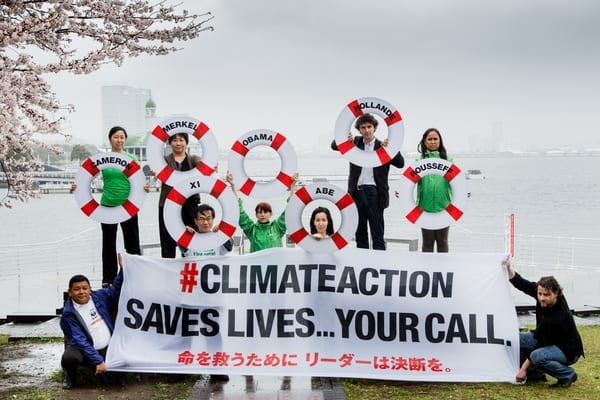IPCC final report concludes with heightened warning of severe climate impacts on food; Oxfam says time for inaction is over

The Intergovernmental Panel on Climate Change (IPCC) report released today presents climate change not as a distant, future threat to food, but as a clear and present danger.
In a world where nearly a billion people are going hungry, climate change is already making it harder for millions to feed their families and without urgent action on adaptation and emissions reduction is set to reverse progress towards ending global hunger.
In response to the IPCC Working Group II final report, released today in Yokohama, Japan, Tim Gore, Head of policy for food and climate change for aid agency Oxfam said: “The report is in and the message is clear: the impact of climate change on food is worse than previously estimated.
In their previous report in 2007, the IPCC was sanguine about how climate change is hitting harvests. This report is categorical that climate change has already meant significant declines in net global yields of staple crops like wheat and maize.
Climate change will continue to hit crop harvests hard in the future, at the same time as demand for food is increasing. You don’t need to be a climate scientist to know that falling crop yields and rising demand does not add up to a food secure future on this planet.
For the first time, the IPCC has also recognised that more extreme weather means we face more extreme food prices. The new story of climate impacts on food is not only about small-scale farmers in poor countries, but about how major crop exporters, global food prices and millions more people in rural and urban areas around the world are affected.
The scientists have spoken – now leaders must resolve to lead. First, they must massively increase investment in adaptation, especially in the poorest countries who have done least to cause this crisis and have been left in the climate lurch by rich countries. For the first time, the IPCC has acknowledged there is an adaptation funding gap. Oxfam estimates poor countries received just 2% of their adaptation funding needs from rich countries in the three years since the Copenhagen climate summit.
The report is clear that there are limits to adaptation, so we must slash our greenhouse gas emissions at the same time. Oxfam is already starting to see these limits in our work with communities. Cutting emissions is vital to fighting hunger.
This report shows that we face a major reversal in the fight against hunger. No government that fails to feed its own people lasts for long. Without urgent action on adaptation and emissions reduction, the goal of ensuring every person has enough to eat may be lost forever. Political leaders reading this report should ask themselves whether this will be the generation to let that happen.”



